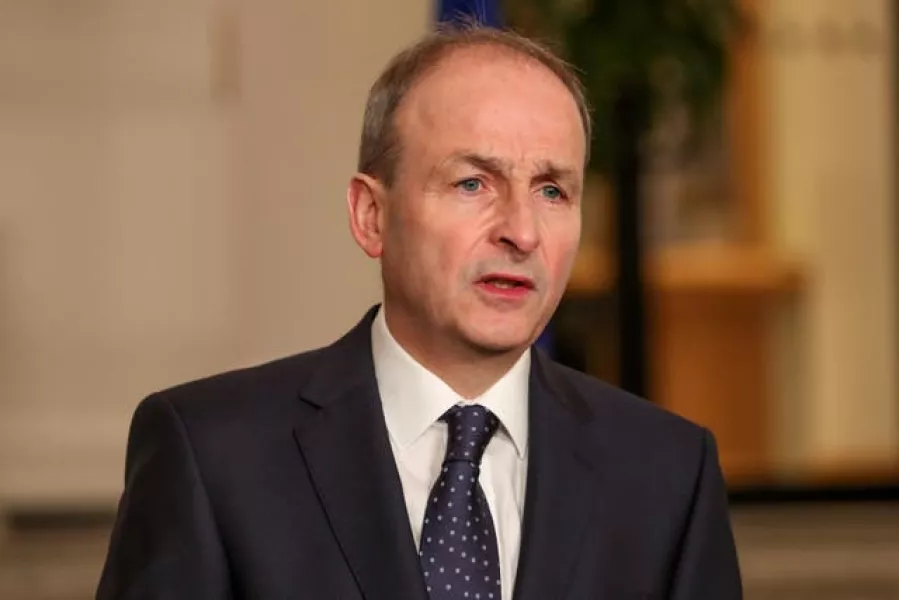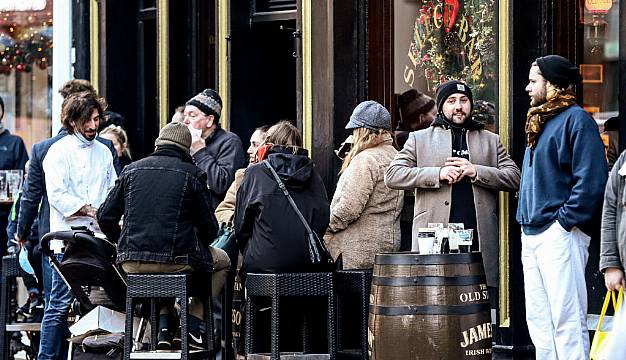New Covid-19 restrictions aimed at curbing the spread of the Omicron variant have come into force in Ireland.
The measures, agreed by the cabinet on Friday, were introduced at midnight on Sunday and will last until January 30th.
Taoiseach Micheál Martin said the new measures were necessary because of the rise in infections caused by Omicron. “Left unchecked, this new strain will represent a very significant threat to hospitals and critical care, but also a threat to all of society and the economy,” he said.
What are the new restrictions?
The new restrictions impact the following sectors:
Hospitality: All restaurants and bars, excluding takeaways and delivery services, must now close at 8pm.
Indoor events: There should also be no indoor events after 8pm on Monday. For any indoor events taking place earlier, attendance has to be capped at 50 per cent of the venue’s capacity or 1,000 people, whichever is lower.
Outdoor events: These will be limited to 50 per cent of venue capacity or 5,000 people, whichever is lower.
Are there any exemptions?
Yes - religious events such as Midnight Mass are exempt from the 8pm closure rule.
Hotel bars and restaurants can stay open after 8pm, but only for overnight guests.
Wedding receptions can take place after 8pm until midnight, but with a maximum of 100 guests.
What about close contact rules?
New restricted movement advice for all close contacts of Covid-19 cases has also been enhanced.
Those who have yet to receive a booster vaccine are now required to restrict their movements for 10 days.
Anyone who has received a booster at least one week ago must restrict their movement for five days and take three antigen tests.
What about travel?
Under new requirements, all travellers into the State from overseas are now required to have an antigen or PCR Covid-19 test with a negative result, depending on their vaccination or recovery status.
All people arriving into the country will be advised to conduct antigen testing every day for five consecutive days, starting on the day that they arrive.

Just weeks after the first Omicron case was identified in Ireland, it has now become the dominant strain of Covid.
The Health Protection Surveillance Centre has estimated that approximately 52 per cent of reported cases are now due to the Omicron variant.
Chief medical officer Dr Tony Holohan said: “It has taken less than two weeks for Omicron to become the dominant strain of Covid-19 in Ireland, revealing just how transmissible this variant is.”
Amid the introduction of the new public health measures, hospitality groups have warned that the restrictions will lead to widespread closures and redundancies in the sector.
Padraig Cribben, chief executive of the Vintners’ Federation of Ireland (VFI), said: “The reality is this decision will decimate the trade that was already on its knees.”
On Sunday, Minister for Public Expenditure Michael McGrath said that no government wanted to be in the position of making decisions that would cost jobs, but said the first duty was to protect the health of the population.

Asked about an estimate from the hospitality industry that 60,000 people in Ireland could lose their jobs, Mr McGrath told RTÉ: “The numbers will be significant, certainly in the tens of thousands.”







